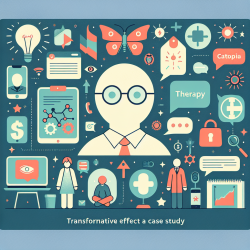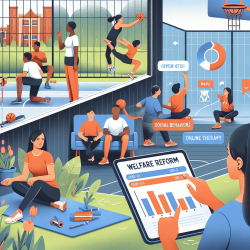Understanding Disability-Inclusive Compassionate Care
In the realm of healthcare, providing compassionate care to individuals with disabilities is not just a moral obligation but a necessity for achieving equitable health outcomes. The research article titled "Disability-inclusive compassionate care: Disability competencies for an Indian Medical Graduate" sheds light on the importance of integrating disability competencies into medical education. This blog aims to guide practitioners on how to improve their skills by implementing the outcomes of this research.
The Need for Disability Competencies
Historically, medical curricula have often overlooked the specific needs of patients with disabilities, treating disability primarily as a medical issue rather than a human rights concern. The outdated Medical Council of India (MCI) curriculum, for instance, failed to adequately address disability-related competencies, risking the perpetuation of healthcare disparities.
According to the World Health Organization, individuals with disabilities are twice as likely to find healthcare providers' skills inadequate, three times more likely to be denied healthcare, and four times more likely to be treated poorly. This underscores the urgent need for a curriculum that emphasizes disability-inclusive compassionate care.
Framing Disability Competencies
The research involved a collaborative effort between the University of Chicago and the University College of Medical Sciences, Delhi. It identified three key stakeholders: disability rights activists, doctors with disabilities, and health profession educators. Through focus group discussions, 52 disability competencies were initially framed, later refined to 27, under the five roles of an Indian Medical Graduate (IMG): clinician, leader, communicator, lifelong learner, and professional.
- Clinician: Emphasizes understanding disability through a human rights lens and making early diagnoses.
- Leader: Focuses on promoting patient-centered decision-making and advocating for social inclusion.
- Communicator: Involves using empathetic communication techniques and assessing patients' capacity to give informed consent.
- Lifelong Learner: Encourages continuous improvement of skills and awareness of disability-related legislation.
- Professional: Highlights the importance of respecting the dignity and autonomy of patients with disabilities.
Implementing the Competencies
Practitioners can enhance their skills by incorporating these competencies into their practice. This involves not only understanding the medical aspects of disability but also recognizing the social and human rights dimensions. By doing so, healthcare providers can ensure that they deliver care that respects the dignity and autonomy of all patients.
Moreover, these competencies align with global standards, making them applicable beyond India. They can be integrated into various health professions, including nursing and dentistry, thereby promoting a more inclusive healthcare system worldwide.
Encouraging Further Research
While this research provides a robust framework for disability-inclusive care, it also highlights the need for ongoing research and dialogue. Practitioners are encouraged to engage with the disability community, participate in further studies, and advocate for the inclusion of disability competencies in all areas of healthcare education.
To read the original research paper, please follow this link: Disability-inclusive compassionate care: Disability competencies for an Indian Medical Graduate.










